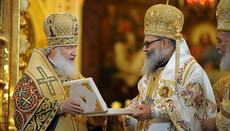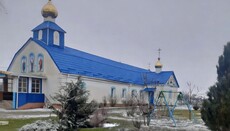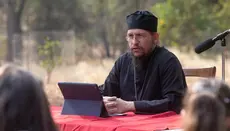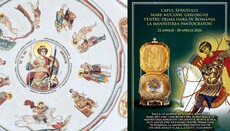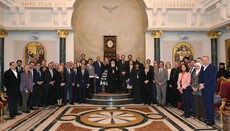Estonia Accuses Orthodox Nuns of Espionage in Rising Religious Tensions
![Puhtitsa Convent [Credit: Balticorthodoxy.com]](/img/article/846/15_main-v1750869776.jpg)
Pühtitsa Convent faces legal and political scrutiny as Estonian officials claim ties to Russian influence, while Orthodox faithful warn of a dangerous precedent for religious freedom
PÜHTITSA — The Telegraph recently reported that the Estonian government has accused the Pühtitsa Convent of participating in a Kremlin-backed campaign to spread pro-Russian propaganda under the guise of monastic neutrality.
Officials allege that the convent — home to dozens of Orthodox nuns — is not merely a place of prayer and spiritual retreat, but a “symbol of the Russki Mir ideology” on Estonian soil.
The Pühtitsa Convent, part of the Estonian Orthodox Church — an autonomous church under the spiritual jurisdiction of the Russian Church — has refused to sever canonical ties with the Russian Orthodox Church, stating that such an act would constitute the sin of schism.
Interior Ministry representative Martin Tulit, told the Telegraph, "the convent should be seen not simply as a religious institution, but also as a symbol of the Russki Mir ideology on Estonian soil – an ideology promoted by the Russian state and the Moscow Patriarchate that blends religion, nationalism, and imperial nostalgia.”
Abbess Filareta Kalatšova strongly denied the allegations, maintaining that the convent seeks only a life of “prayer and work,” far removed from political entanglements. “Any war is a tragedy,” she said. “We came to the convent to leave the secular world behind.” The Estonian Orthodox Church itself has condemned any misuse of religion for nationalistic propaganda.
Nevertheless, Estonian officials accuse the convent of subtly echoing Kremlin narratives, particularly portraying Estonia as persecuting innocent Russian Orthodox nuns — a claim the government denies.
UOJ-USA recently reported on a new Estonian law which bars religious institutions from affiliating with organizations deemed to support violent actions against Estonia’s sovereignty — a category into which the state has placed the Moscow Patriarchate due to its leadership's support for Russia’s war in Ukraine.
Orthodox observers have expressed deep concern that the Estonian government’s actions blur the line between necessary national security and an infringement on religious freedom.
“The state is asking these nuns to choose between loyalty to their canonical Church and compliance with a law designed for geopolitical ends,” a representative from the Orthodox Church in Western Europe told the Telegraph. “That is a choice no true monastic should be forced to make.”
The convent, which has survived Nazi and Soviet oppression, now faces what some see as a new kind of ideological persecution — one that tests Europe’s commitment to religious liberty in an age of geopolitical anxiety.
